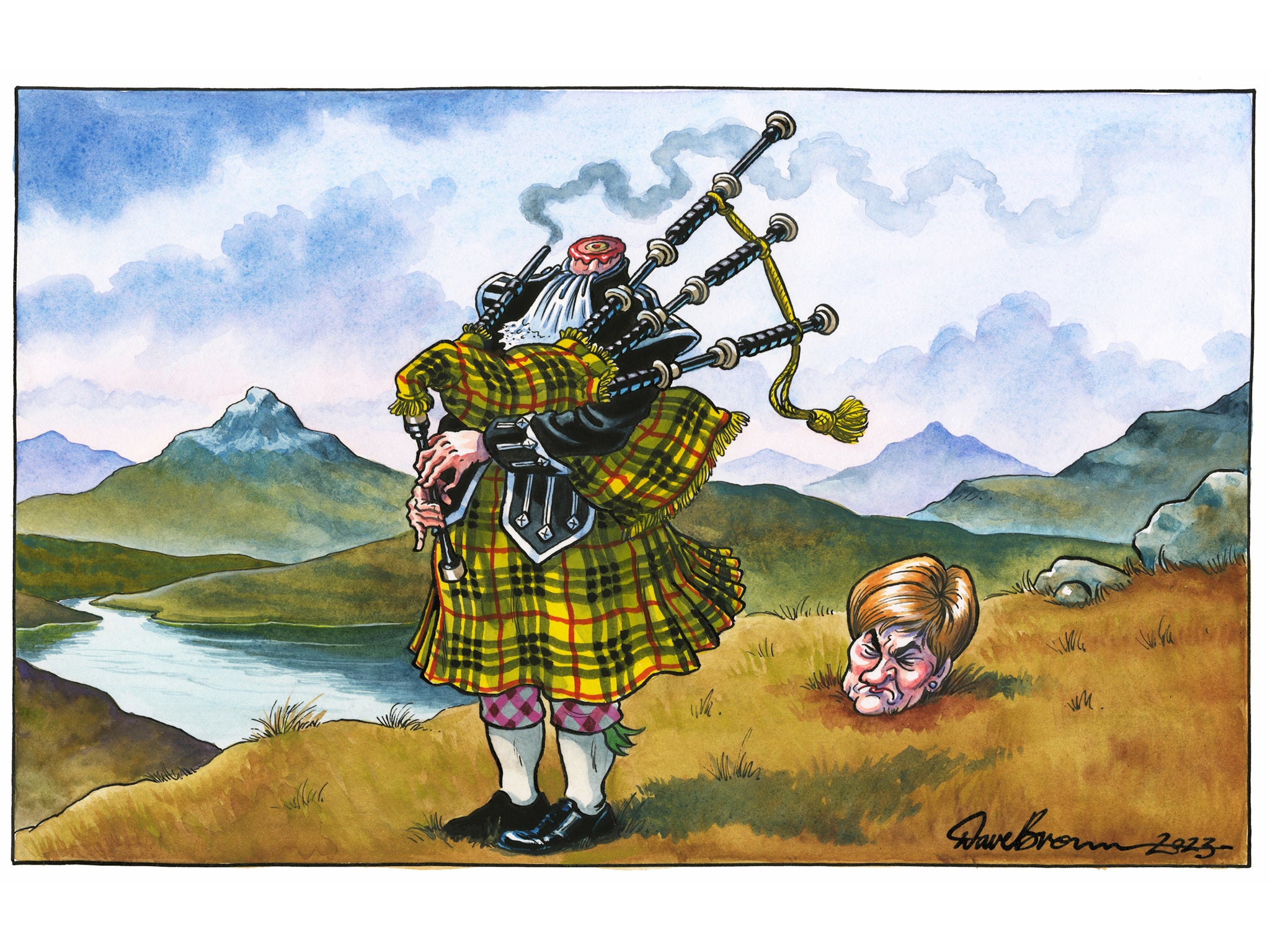After Nicola Sturgeon, the UK’s relationship with Scotland needs a reset
Editorial: Whether independence is close at hand or far away, the two governments – and the other devolved administrations – have formidable challenges that they must work together to resolve

Though she might not instinctively agree, Nicola Sturgeon was, in one respect, the Margaret Thatcher of Scotland.
While undoubtedly strong, she’s been incredibly divisive, too. She’s had huge success, but some would say she let her party down by becoming involved in gender politics. It was to prove her undoing. She stayed too long, and overplayed her hand. She has left Scotland divided, and harmed her cause.
It is a marked unravelling. For the best part of a decade, Ms Sturgeon dominated not just her party but the entire Scottish political landscape, and was a major player in British politics. No one else came close, including her predecessor Alex Salmond, who did his best to oust her. She dispatched him readily and with characteristic cool.
Ms Sturgeon picked her party up from the disappointment of the lost independence referendum of 2014, and led it on to the “tsunami” general election in 2015, in which the SNP won almost every Scottish Westminster seat. She was there defending Scotland’s interests, and its Remain vote, through the tribulations of Brexit, and provided clear, reassuringly assured leadership during the transcendent challenge of the pandemic.
The contrast with the chaotic ways of Boris Johnson was painful for the English to observe.
Few politicians enjoy the luxury of leaving at a moment of their own choosing (as the fate of the last four British prime ministers demonstrates). The pressures on Ms Sturgeon have been building, not least in relation to the Gender Recognition Bill. Her administration was looking increasingly tired and accident-prone, but she had no real rivals, either within the SNP or outside it.
In all likelihood, she’d have survived the current rows and led the SNP on to another term at Holyrood, another respectable showing in the UK general election, and another term in office (albeit in a weaker position in each case). Perhaps it is to Ms Sturgeon’s credit that she has chosen to resign now.
In her resignation statement, she asked the question: “Is me carrying on right for the country, for my party, and for the independence cause I have devoted my life to?” She rightly reached the conclusion that the answer to that, now, is “no”.
As the first minister acknowledged, the independence cause has become tangled up with her personality, and is proving an impediment to success. It needs some fresh thinking and fresh impetus to push it forward. So, yes, it was time for the Sturgeon era to end.
The paradox is that, at least in the short term, the prospects for independence seem likely to worsen. The forthcoming SNP leadership contest seems set to be particularly fractious and bitter, with trans rights, the controversy over its finances, and deep division over the path to independence combining to leave the party weaker and more divided.
Ms Sturgeon’s successor will lack her electoral mandate, authority, and – likely – her unnatural determination and communication skills. They will need some space to plot their own course, and to attempt to win a fresh personal mandate in a national election.
There’s going to be a lively debate, and that will also consume time and energy. But there are other factors sapping the energy from the independence cause. The immiserating experience of Brexit is an object lesson in how the restoration of nominal sovereignty and economic separation can inflict significant damage on living standards.
The SNP certainly needs some better answers to questions about what life in an independent Scotland in Europe would be like for people and businesses. Would Scotland have its own currency? When would it join the euro? What would happen to the free movement of people between Scotland and the rest of the UK? Soft border or hard border? Would Scotland stay in the UK internal market? How might police, defence and security cooperation work?
More than any other factor, though, the increasingly obvious fact of the imminent demise of the Conservative government inevitably weakens the impetus for independence. Whatever else, a social democratic government led by Sir Keir Starmer, promising a more constructive relationship with Scotland – not to mention Brussels – and possibly more devolution of powers, is not as appalling a prospect as another five years of dogmatic, Europhobic, English Tory rule.
At least for now, Scotland shouldn't need independence just to be rid of the Conservatives (though the movement is about much more than that). In that context, the worst thing that befell Ms Sturgeon in office wasn’t anything that occurred in Scotland, but the removal of Mr Johnson from power.
Mr Johnson was the archetype of a very particular caricature of a condescending Englishman, and someone who thus served with considerable distinction as the best recruiting sergeant the SNP ever had. The relationship between him and Ms Sturgeon was curiously symbiotic, and far more complex than a simple combination of love and hate. It did the union no good, though. Now, thankfully, both protagonists are gone.
Like the UK’s relations with the EU, the UK’s relationship with Scotland needs a reset. The arrival of the more emollient Rishi Sunak – who has refrained from the casual insults that Mr Johnson and Liz Truss used to throw around – was the beginning of that process, and Ms Sturgeon’s successor will hopefully reciprocate.
Whether independence is close at hand or far away, the two governments – and the other devolved administrations – have plenty of immediate and formidable common challenges to work together to resolve, including the cost of living crisis, the war in Europe and climate change, to name but three. They must find a way to do so at the earliest possible moment.






Join our commenting forum
Join thought-provoking conversations, follow other Independent readers and see their replies
Comments